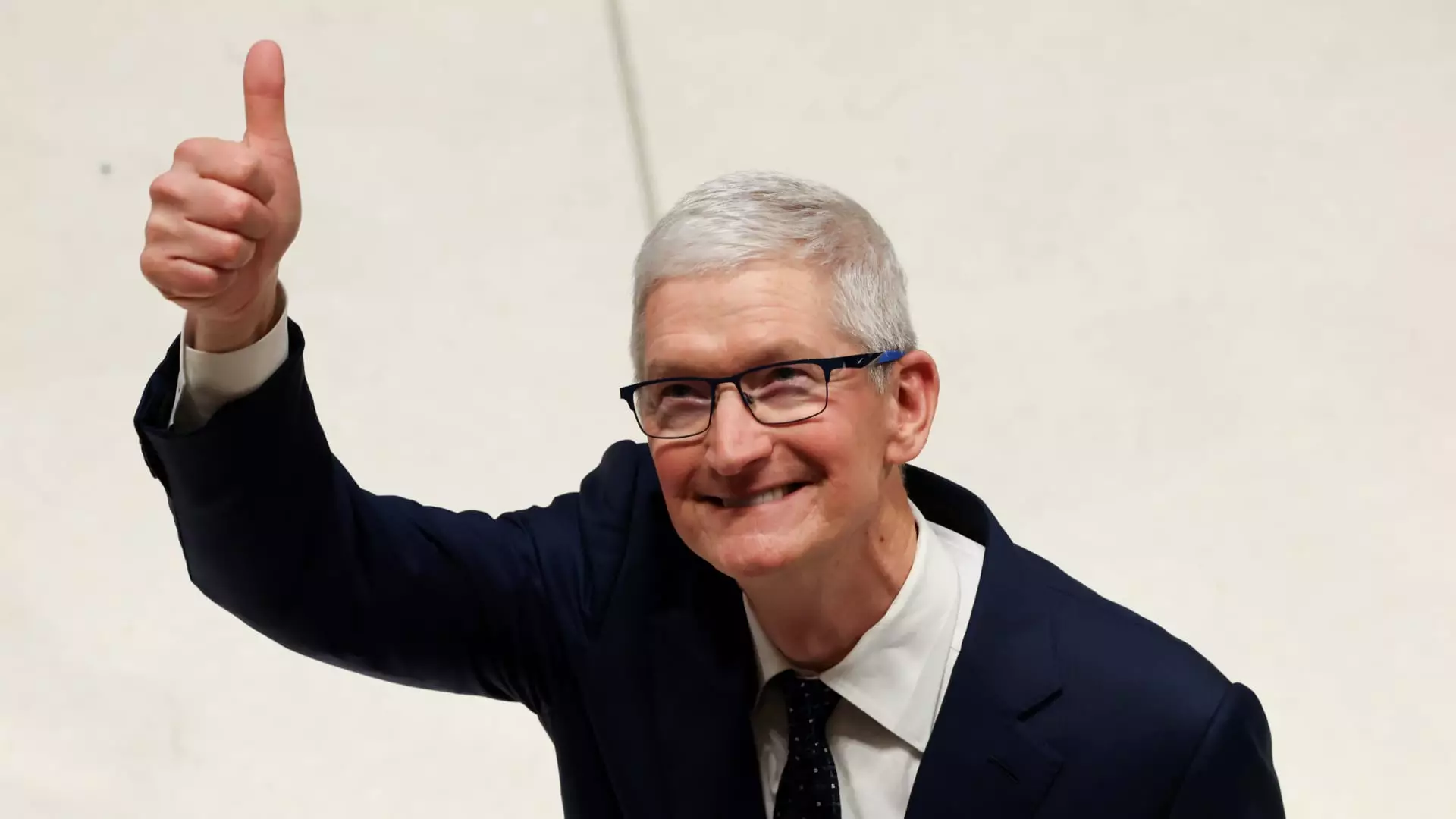In a significant recent ruling, Apple has emerged victorious against the U.K. government’s attempts to suppress critical information regarding its summons to create a “backdoor” for accessing iPhone user data. This issue evokes a larger conversation about the balance of power between government authority and individual privacy rights. As we navigate our increasingly digital lives, understanding how our data is managed and protected should be a priority for both corporations and citizens alike.
The ruling from the U.K. Investigatory Powers Tribunal emphasized the importance of transparency in judicial proceedings. Judges Rabinder Singh and Jeremy Johnson condemned the government’s desire for secrecy, asserting that such a desire “would be the most fundamental interference with the principle of open justice.” In a society where trust between the public and government institutions is paramount, the ruling reminds us that the pursuit of national security should not come at the expense of accountability. As technology advances and privacy concerns become more prominent, principles like open justice must be fiercely protected.
The Encryption Conundrum
Encryption, particularly end-to-end encryption, has been a cornerstone of digital security, granting users the confidence that their private conversations are shielded from prying eyes. However, governments — notably in the West — have increasingly demanded access to these encrypted voices as part of a wider effort to combat crime. The U.K.’s Investigatory Powers Act of 2016 empowers authorities to force tech companies to introduce backdoors in their systems. Critics argue that weakening encryption not only jeopardizes personal data but also risks facilitating unauthorized access by malicious actors.
This complex dilemma raises pressing questions regarding the definition of security. Are we truly safer with the government accessing our private conversations, or are we merely trading long-term security for momentary peace of mind? Apple has taken a firm stance, asserting that compromising its Advanced Data Protection (ADP) system would not only endanger its users but fundamentally misalign with the company’s commitment to privacy.
Apple’s Response: A Commitment to Security
Apple’s retort to the U.K. government reflects a dedication to maintaining the integrity of its security measures. The tech giant’s withdrawal of its ADP system for U.K. users underlines the broader implications of governmental overreach in the tech industry. By prioritizing robust privacy protections, Apple fortifies its brand and simultaneously sends a message that the battle against malicious activities must not come at the cost of citizen rights.
In a blog post outlining its perspective, Apple reiterated its unwavering commitment to user security, emphasizing that it has “never built a backdoor or master key” for any of its products. By standing its ground against relentless attempts at compliance with invasive policies, Apple positions itself not just as a tech leader but as a staunch advocate for privacy rights. The company’s refusal to bow to governmental pressure sends a clear message to other corporations: the fight for user privacy is far from over, and standing firm is crucial.
Implications for Society and the Tech Industry
The friction between technology companies and governments could lead to a broader conversation about data privacy and user rights in the digital age. It’s not simply a battle for privacy—it’s a philosophical struggle about the ownership of our personal information. As governments push back against encryption, the question must shift to how much of our lives we are willing to relinquish and how much control we demand over our personal data.
This recent chapter in Apple’s ongoing narrative illustrates the transformative power tech companies can wield in shaping public discourse. As watchdogs of privacy, they must balance business interests with the ethical obligation to protect user information. Citizens must also remain vigilant and informed, advocating for their rights while calling for transparency and ethical practices within both technology and government entities.
Ultimately, the struggle for user privacy is emblematic of a larger societal shift toward valuing individual freedoms and data security. Companies like Apple play a critical role in promoting a culture that can challenge government overreach, fostering an environment where privacy is celebrated rather than compromised.

